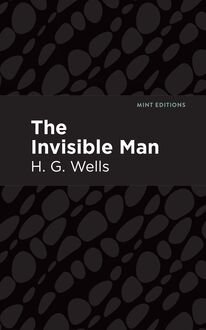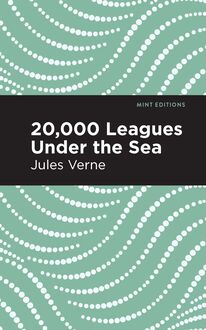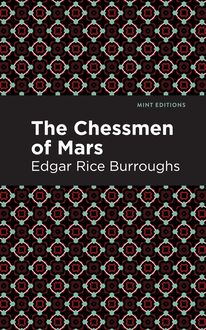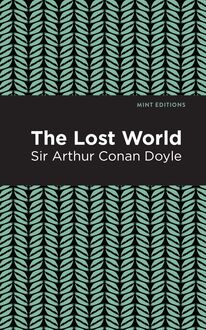-
 Univers
Univers
-
 Ebooks
Ebooks
-
 Livres audio
Livres audio
-
 Presse
Presse
-
 Podcasts
Podcasts
-
 BD
BD
-
 Documents
Documents
-
- Cours
- Révisions
- Ressources pédagogiques
- Sciences de l’éducation
- Manuels scolaires
- Langues
- Travaux de classe
- Annales de BEP
- Etudes supérieures
- Maternelle et primaire
- Fiches de lecture
- Orientation scolaire
- Méthodologie
- Corrigés de devoir
- Annales d’examens et concours
- Annales du bac
- Annales du brevet
- Rapports de stage
La lecture à portée de main
Vous pourrez modifier la taille du texte de cet ouvrage
Découvre YouScribe en t'inscrivant gratuitement
Je m'inscrisDécouvre YouScribe en t'inscrivant gratuitement
Je m'inscrisEn savoir plus
Vous pourrez modifier la taille du texte de cet ouvrage
En savoir plus

Description
Soon after the American Civil War, Confederate soldier John Carter joins the gold rush in Arizona. After striking a vein of gold, Carter runs into trouble with the natives of the area. In attempts to evade their pursuit, Carter hides in a cave, unaware of its magical properties. Mysteriously, Carter is transported to Mars, which the planet inhabitants call “Barsoom”. When Carter discovers that the gravity difference between Mars and Earth has granted him powers of extraordinary strength, he uses his ability to rise among the ranks of a tribe named the Tharks. However, when a group of Tharks kidnap Dejah, a princess, Carter feels obligated to save her. Promising to return her to her people, Carter helps Dejah escape, unintentionally becoming involved in political turmoil while he falls in love with the princess. When an opposing force plans to invade Dejah’s home city, Carter leads an army to fight back, risking his life for the woman he loves.
With high adventure, intense action, and fantasy, A Princess of Mars by Edgar Rice Burroughs is a classic example of 20th century pulp fiction. Set in the harsh environment of a dying planet, A Princess of Mars is a highly imaginative work that captures the minds of readers while entertaining with its adventure and romance. First published just over one hundred years ago in 1912, A Princess of Mars has remained a fan favorite of the series, inspiring film adaptations, including one produced by Walt Disney Pictures titled John Carter.
This edition of A Princess of Mars by Edgar Rice Burroughs features a new, eye-catching cover design and is printed in an easy-to-read font. With these accommodations, A Princess of Mars caters to a modern audience while preserving the original wonder and adventure of Edgar Rice Burroughs’ work.
Sujets
Informations
| Publié par | Mint Editions |
| Date de parution | 23 février 2021 |
| Nombre de lectures | 0 |
| EAN13 | 9781513277073 |
| Langue | English |
| Poids de l'ouvrage | 1 Mo |
Informations légales : prix de location à la page 0,0500€. Cette information est donnée uniquement à titre indicatif conformément à la législation en vigueur.
Extrait
A Princess of Mars
Edgar Rice Burroughs
A Princess of Mars was first published in 1912.
This edition published by Mint Editions 2021.
ISBN 9781513272078 | E-ISBN 9781513277073
Published by Mint Editions®
minteditionbooks .Com
Publishing Director: Jennifer Newens
Design & Production: Rachel Lopez Metzger
Project Manager: Micaela Clark
Typesetting: Westchester Publishing Services
C ONTENTS I. O N THE A RIZONA H ILLS II. T HE E SCAPE OF THE D EAD III. M Y A DVENT ON M ARS IV. A P RISONER V. I E LUDE M Y W ATCH D OG VI. A F IGHT T HAT W ON F RIENDS VII. C HILD- R AISING ON M ARS VIII. A F AIR C APTIVE FROM THE S KY IX. I L EARN THE L ANGUAGE X. C HAMPION AND C HIEF XI. W ITH D EJAH T HORIS XII. A P RISONER WITH P OWER XIII. L OVE- M AKING ON M ARS XIV . A D UEL TO THE D EATH XV. S OLA T ELLS M E H ER S TORY XVI. W E P LAN E SCAPE XVII. A C OSTLY R ECAPTURE XVIII. C HAINED IN W ARHOON XIX. B ATTLING IN THE A RENA XX. I N THE A TMOSPHERE F ACTORY XXI. A N A IR S COUT FOR Z ODANGA XXII. I F IND D EJAH XXIII. L OST IN THE S KY XXIV. T ARS T ARKAS F INDS A F RIEND XXV. T HE L OOTING OF Z ODANGA XXVI. T HROUGH C ARNAGE TO J OY XXVII. F ROM J OY TO D EATH XXVIII. A T THE A RIZONA C AVE
I
O N THE A RIZONA H ILLS
I am a very old man; how old I do not know. Possibly I am a hundred, possibly more; but I cannot tell because I have never aged as other men, nor do I remember any childhood. So far as I can recollect I have always been a man, a man of about thirty. I appear today as I did forty years and more ago, and yet I feel that I cannot go on living forever; that some day I shall die the real death from which there is no resurrection. I do not know why I should fear death, I who have died twice and am still alive; but yet I have the same horror of it as you who have never died, and it is because of this terror of death, I believe, that I am so convinced of my mortality.
And because of this conviction I have determined to write down the story of the interesting periods of my life and of my death. I cannot explain the phenomena; I can only set down here in the words of an ordinary soldier of fortune a chronicle of the strange events that befell me during the ten years that my dead body lay undiscovered in an Arizona cave.
I have never told this story, nor shall mortal man see this manuscript until after I have passed over for eternity. I know that the average human mind will not believe what it cannot grasp, and so I do not purpose being pilloried by the public, the pulpit, and the press, and held up as a colossal liar when I am but telling the simple truths which some day science will substantiate. Possibly the suggestions which I gained upon Mars, and the knowledge which I can set down in this chronicle, will aid in an earlier understanding of the mysteries of our sister planet; mysteries to you, but no longer mysteries to me.
My name is John Carter; I am better known as Captain Jack Carter of Virginia. At the close of the Civil War I found myself possessed of several hundred thousand dollars (Confederate) and a captain’s commission in the cavalry arm of an army which no longer existed; the servant of a state which had vanished with the hopes of the South. Masterless, penniless, and with my only means of livelihood, fighting, gone, I determined to work my way to the southwest and attempt to retrieve my fallen fortunes in a search for gold.
I spent nearly a year prospecting in company with another Confederate officer, Captain James K. Powell of Richmond. We were extremely fortunate, for late in the winter of 1865, after many hardships and privations, we located the most remarkable gold-bearing quartz vein that our wildest dreams had ever pictured. Powell, who was a mining engineer by education, stated that we had uncovered over a million dollars worth of ore in a trifle over three months.
As our equipment was crude in the extreme we decided that one of us must return to civilization, purchase the necessary machinery and return with a sufficient force of men properly to work the mine.
As Powell was familiar with the country, as well as with the mechanical requirements of mining we determined that it would be best for him to make the trip. It was agreed that I was to hold down our claim against the remote possibility of its being jumped by some wandering prospector.
On March 3, 1866, Powell and I packed his provisions on two of our burros, and bidding me good-bye he mounted his horse, and started down the mountainside toward the valley, across which led the first stage of his journey.
The morning of Powell’s departure was, like nearly all Arizona mornings, clear and beautiful; I could see him and his little pack animals picking their way down the mountainside toward the valley, and all during the morning I would catch occasional glimpses of them as they topped a hog back or came out upon a level plateau. My last sight of Powell was about three in the afternoon as he entered the shadows of the range on the opposite side of the valley.
Some half hour later I happened to glance casually across the valley and was much surprised to note three little dots in about the same place I had last seen my friend and his two pack animals. I am not given to needless worrying, but the more I tried to convince myself that all was well with Powell, and that the dots I had seen on his trail were antelope or wild horses, the less I was able to assure myself.
Since we had entered the territory we had not seen a hostile Indian, and we had, therefore, become careless in the extreme, and were wont to ridicule the stories we had heard of the great numbers of these vicious marauders that were supposed to haunt the trails, taking their toll in lives and torture of every white party which fell into their merciless clutches.
Powell, I knew, was well armed and, further, an experienced Indian fighter; but I too had lived and fought for years among the Sioux in the North, and I knew that his chances were small against a party of cunning trailing Apaches. Finally I could endure the suspense no longer, and, arming myself with my two Colt revolvers and a carbine, I strapped two belts of cartridges about me and catching my saddle horse, started down the trail taken by Powell in the morning.
As soon as I reached comparatively level ground I urged my mount into a canter and continued this, where the going permitted, until, close upon dusk, I discovered the point where other tracks joined those of Powell. They were the tracks of unshod ponies, three of them, and the ponies had been galloping.
I followed rapidly until, darkness shutting down, I was forced to await the rising of the moon, and given an opportunity to speculate on the question of the wisdom of my chase. Possibly I had conjured up impossible dangers, like some nervous old housewife, and when I should catch up with Powell would get a good laugh for my pains. However, I am not prone to sensitiveness, and the following of a sense of duty, wherever it may lead, has always been a kind of fetich with me throughout my life; which may account for the honors bestowed upon me by three republics and the decorations and friendships of an old and powerful emperor and several lesser kings, in whose service my sword has been red many a time.
About nine o’clock the moon was sufficiently bright for me to proceed on my way and I had no difficulty in following the trail at a fast walk, and in some places at a brisk trot until, about midnight, I reached the water hole where Powell had expected to camp. I came upon the spot unexpectedly, finding it entirely deserted, with no signs of having been recently occupied as a camp.
I was interested to note that the tracks of the pursuing horsemen, for such I was now convinced they must be, continued after Powell with only a brief stop at the hole for water; and always at the same rate of speed as his.
I was positive now that the trailers were Apaches and that they wished to capture Powell alive for the fiendish pleasure of the torture, so I urged my horse onward at a most dangerous pace, hoping against hope that I would catch up with the red rascals before they attacked him.
Further speculation was suddenly cut short by the faint report of two shots far ahead of me. I knew that Powell would need me now if ever, and I instantly urged my horse to his topmost speed up the narrow and difficult mountain trail.
I had forged ahead for perhaps a mile or more without hearing further sounds, when the trail suddenly debouched onto a small, open plateau near the summit of the pass. I had passed through a narrow, overhanging gorge just before entering suddenly upon this table land, and the sight which met my eyes filled me with consternation and dismay.
The little stretch of level land was white with Indian tepees, and there were probably half a thousand red warriors clustered around some object near the center of the camp. Their attention was so wholly riveted to this point of interest that they did not notice me, and I easily could have turned back into the dark recesses of the gorge and made my escape with perfect safety. The fact, however, that this thought did not occur to me until the following day removes any possible right to a claim to heroism to which the narration of this episode might possibly otherwise entitle me.
I do not believe that I am made of the stuff which constitutes heroes, because, in all of the hundreds of instances that my voluntary acts have placed me face to face with death, I cannot recall a single one where any alternative step to that I took occurred to me until many hours later. My mind is evidently so constituted that I am subconsciously forced into the path of duty without recourse to tiresome mental processes. However that may be, I have never regretted that cowardice is not optional with me.
In this instance I was, of course, positive that Powell was the center of attraction, but whether I thought or a
-
 Univers
Univers
-
 Ebooks
Ebooks
-
 Livres audio
Livres audio
-
 Presse
Presse
-
 Podcasts
Podcasts
-
 BD
BD
-
 Documents
Documents
-
Jeunesse
-
Littérature
-
Ressources professionnelles
-
Santé et bien-être
-
Savoirs
-
Education
-
Loisirs et hobbies
-
Art, musique et cinéma
-
Actualité et débat de société
-
Jeunesse
-
Littérature
-
Ressources professionnelles
-
Santé et bien-être
-
Savoirs
-
Education
-
Loisirs et hobbies
-
Art, musique et cinéma
-
Actualité et débat de société
-
Actualités
-
Lifestyle
-
Presse jeunesse
-
Presse professionnelle
-
Pratique
-
Presse sportive
-
Presse internationale
-
Culture & Médias
-
Action et Aventures
-
Science-fiction et Fantasy
-
Société
-
Jeunesse
-
Littérature
-
Ressources professionnelles
-
Santé et bien-être
-
Savoirs
-
Education
-
Loisirs et hobbies
-
Art, musique et cinéma
-
Actualité et débat de société
- Cours
- Révisions
- Ressources pédagogiques
- Sciences de l’éducation
- Manuels scolaires
- Langues
- Travaux de classe
- Annales de BEP
- Etudes supérieures
- Maternelle et primaire
- Fiches de lecture
- Orientation scolaire
- Méthodologie
- Corrigés de devoir
- Annales d’examens et concours
- Annales du bac
- Annales du brevet
- Rapports de stage




















